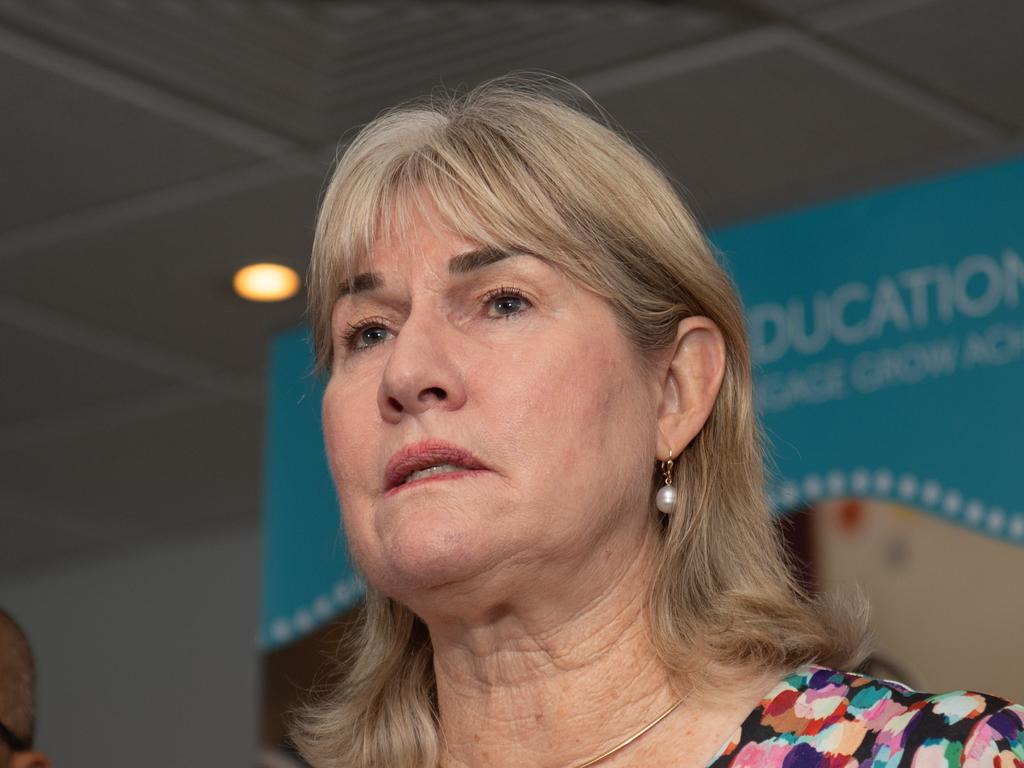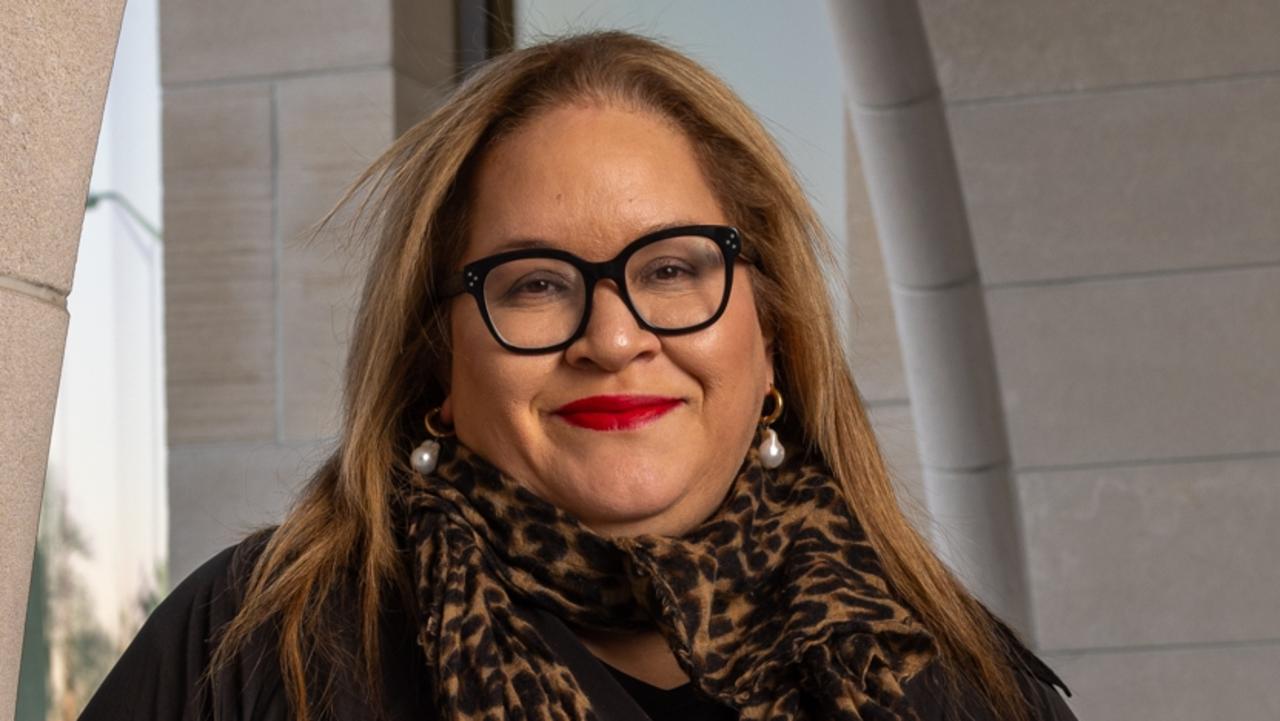‘School system very strong’: NT Education Minister Eva Lawler hits back over funding
NT Education Minister Eva Lawler denies the territory’s school system is ‘broken’, saying ‘the NT has a very strong, very robust education system’.
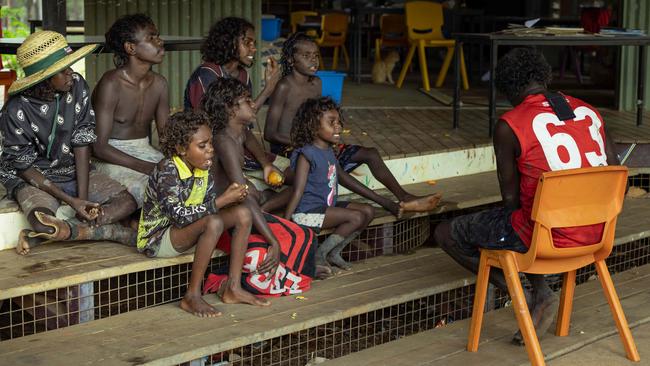
Northern Territory Education Minister Eva Lawler has hit back at reports that the NT school system is “broken”, saying “the NT has a very strong, very robust education system”.
Over the past week, The Australian has reported on the state of education in the NT, where one in five children is effectively unfunded, the majority of students fail to meet minimum standards of literacy and numeracy, and attendance rates are as low as 18.7 per cent.
In an interview with ABC Darwin’s Liz Trevaskis on Thursday, Ms Lawler said she was a product of the NT education system, as a student and an educator of more than 40 years, and that the reports were “a miscalculation”.
She accused The Australian of “running down what’s happening in education”, however she did not directly dispute any of the published information or highlight any inaccuracies.
Ms Lawler declined several interview requests from The Australian in the lead-up to the publication of the NT Schools in Crisis series and the NT education department denied The Australian access to all government schools and their staff.
Federal Education Minister Jason Clare said on average, public schools in the Northern Territory are the most underfunded schools in the country, with NT students only funded to 80 per cent of minimum standards.
When asked about the funding shortfall, Ms Lawler said: “You’d find no other minister more passionate than me that’s lobbying the federal government to make sure that we get full funding for schools in the Northern Territory.
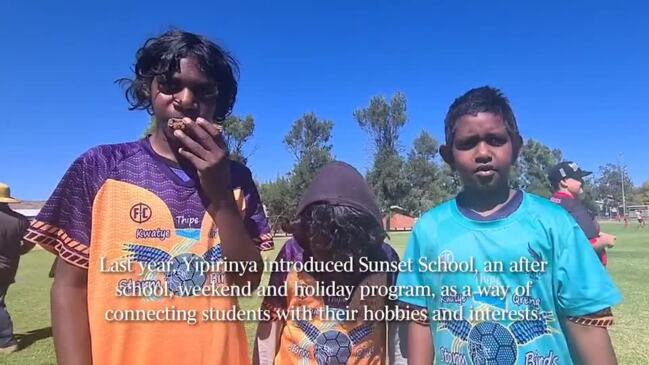
“And I’ve said that full funding and equity in education and in Australia will be when a school like Maningrida gets exactly the same funding as Geelong Grammar, Scots College and all of those private schools on the East Coast.”
After a 2022 review of its funding model, the NT government committed to rolling back attendance-based funding, also known as effective enrolment, in the next two to five years. Ms Lawler announced in the interview that she hoped a new model would be in place in 2025.
Independent Member for Araluen Robyn Lambley called on the government to end attendance-based enrolment immediately by introducing a bill on urgency at the next parliamentary sittings in October.
“Labor initially rejected (attendance-based funding), but they haven’t changed it in seven years in power,” Ms Lambley said. “It hasn’t worked, it’s not a good fit for the Territory. It’s good at saving money, but in terms of getting kids to school in remote areas, it’s failing miserably.”
Ms Lawler also said that claims shortcomings in the delivery of education to the bush had contributed to crime issues in the Northern Territory were “simplistic”.
“It’s simplistic answers to something that is very complex,” she said.
The Australian spoke to many sources about potential links between crime and education, as well as how poverty, disability, housing, and general disadvantage all contributed to both crime and school attendance.
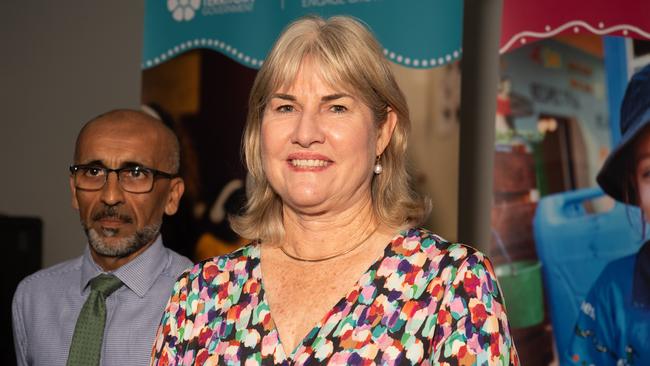
When The Australian put questions about crime and education to Ms Lawler before publication, she did not respond.
The Australian also reported on university-led research that demonstrated the impacts of a decade-old policy that stopped providing high school education in remote Indigenous communities in the Northern Territory has had “disastrously bad” outcomes, with some of the affected children joining criminal gangs.
According to the published research, in one community impacted by the policy, almost one in 10 students had never been to high school, and almost three-quarters (74 per cent) dropped out before the end of Year 10 and were “smoking”, “self-harming”, “long-grassing” (living on the streets, in parks or bushland) or “married up” instead.
“The students that are currently committing crime are probably kids that are in Darwin, Palmerston, Alice Springs, Tennant Creek, rather than kids that are in remote communities,” Ms Lawler said. “And you know, somebody else can check that data. But you know, a child that commits a crime, that those issues are many and varied.”

Ms Lawler said there were several reviews currently underway, including reviews of secondary education, disability and preschooling.
“Is there more work to do? Absolutely. And as a government, our Labor government has been very much focused on education. So financially, we’ve seen every year our education budget increase, which is a good thing. And we’ve also undertaken a number of clear reviews, where we know there’s more work to be done and one of those is around effective enrolment.”




